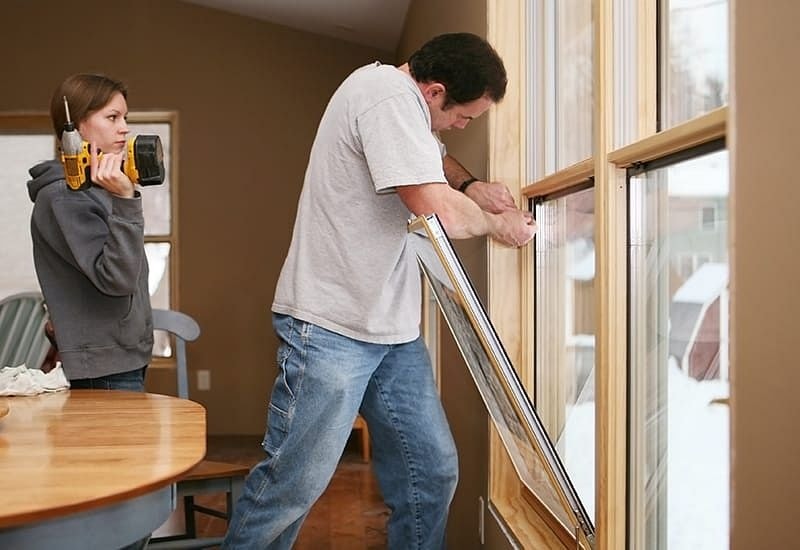Jersey Village Window Replacement: Boost Your Home's Value
Jersey Village Window Replacement: Boost Your Home's Value
Blog Article
Upgrade Your Home With Energy-Efficient Home Window Substitutes
In the world of home renovation, the decision to update to energy-efficient window substitutes can significantly impact both the capability and appearances of a house (Houston Pella windows). As homeowners seek methods to enhance the efficiency and sustainability of their living rooms, the selection of home windows plays a crucial function in attaining these goals. Beyond the surface area degree of plain visual appeals, energy-efficient windows use a wide variety of advantages that go past simple visual charm. With a mindful choice process that takes into consideration numerous factors, from glass kinds to setup techniques, starting this home upgrade journey can show to be a transformative venture.
Advantages of Energy-Efficient Windows

The setup of energy-efficient home windows offers significant savings on energy bills while improving ecological sustainability. Energy-efficient windows are created to reduce warmth loss and gain, decreasing the demand for heating and cooling systems to work overtime. By efficiently insulating the home, these home windows help maintain a comfy interior temperature level year-round, resulting in reduced power intake and lowered energy expenses. In addition, energy-efficient home windows can aid manage dampness degrees within the home, reducing the threat of mold and mold growth.
Beyond the monetary advantages, energy-efficient home windows add to ecological sustainability by decreasing carbon exhausts associated with energy production. Generally, investing in energy-efficient home windows not just improves the comfort and effectiveness of a home yet additionally aligns with environmentally aware practices.
Types of Energy-Efficient Glass
Numerous sophisticated types of energy-efficient glass offer one-of-a-kind residential properties that provide to different demands and preferences in improving the sustainability and performance of buildings. Triple-pane glass, consisting of 3 layers of glass with protecting gas between them, supplies boosted thermal insulation, making it very energy-efficient. In addition, self-cleaning glass with a special layer that damages down and loosens up dust when revealed to sunshine can minimize maintenance demands and keep windows looking tidy.
Aspects to Consider When Selecting
When pondering energy-efficient home window replacements, it is imperative to meticulously assess certain factors that align with your sustainability objectives and wanted energy cost savings. The U-factor measures exactly how well the window protects, with lower numbers showing far better insulation, while the SHGC suggests the home window's ability to block heat from sunlight. By thoroughly reviewing these aspects, you can select energy-efficient windows that enhance convenience, decrease power expenses, and profit the environment.
Setup and Maintenance Tips

Routine maintenance is crucial to preserving the effectiveness of your energy-efficient home windows. Inspect the windows periodically for any type of signs of wear, damage, or sealer degeneration. Tidy the structures, tracks, and glass consistently using light soap and water to remove dirt and crud that can influence efficiency. Check the weather-stripping and seals for any kind of tears or spaces and replace them if needed to preserve the windows' energy efficiency.
In addition, lubricate moving parts such as hinges and locks to make certain smooth procedure. By complying with these installation and upkeep tips, you can enhance the energy efficiency of your home and prolong the life expectancy of your energy-efficient windows.
Cost-Benefit Evaluation of Updating

Energy-efficient windows are developed to decrease heat transfer, reducing the demand for home heating and cooling systems to work overtime. This can cause significant cost savings on energy bills, specifically in areas with severe temperatures. In addition, energy-efficient windows can improve the total worth of your home, making it more appealing to prospective buyers if you determine to offer in the future.
When computing the cost-benefit analysis, consider the possible savings on power costs, any available rewards or rebates, and the lifespan of the home windows. While the preliminary price may be higher, the long-lasting savings and benefits of energy-efficient home windows make them a wise investment for homeowners aiming to improve their residential property's power performance and value.

Conclusion
To conclude, upgrading to energy-efficient home window substitutes uses numerous benefits such as reduced energy consumption, boosted convenience, and price financial savings. By picking the ideal sort of energy-efficient glass and thinking about aspects like frame product and installment, homeowners can take full advantage of the performance of their windows. Routine maintenance and proper installment are crucial for long-lasting efficiency. Generally, the cost-benefit evaluation of updating to energy-efficient home windows shows that the preliminary investment can result in significant savings in the future.
When pondering energy-efficient home window substitutes, it is vital to very carefully assess specific aspects that line up with your window replacement sustainability purposes and preferred power cost savings. The U-factor procedures how well the home window insulates, with lower numbers indicating better insulation, while the SHGC suggests the home window's ability to obstruct heat from sunshine. By very carefully assessing these elements, you can pick energy-efficient windows that enhance comfort, decrease power costs, and benefit the atmosphere.
While energy-efficient windows might have a greater in advance cost contrasted to standard windows, the long-lasting advantages typically exceed the first financial investment.In conclusion, upgrading to energy-efficient home window replacements provides many advantages such as lowered energy usage, boosted comfort, and expense savings.
Report this page